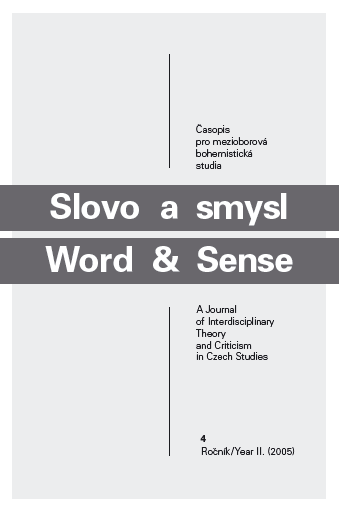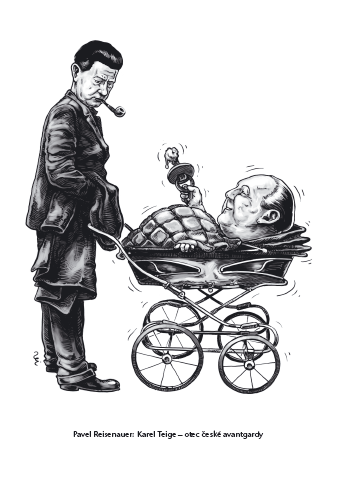The Brown University Czech Program
PROVIDENCE
The Brown University Czech language program is part of an undergraduate major in Slavic Studies, where the language component consists of 3 years of Czech or Russian, or 2 years of both. Language(s) is/are combined with seven advanced-level content courses related to any aspects of Slavic cultures (e.g. literature, history, political science, international relations, art history, and theater). While most US institutions offer different levels of Czech in alternating years, Brown has so far been able to offer all three years of Czech each year. Such consistency is important to most undergraduate students in the US, where each student chooses his/her concentration only at the end of the second year and must finish by the end of the fourth year to graduate. Annual offering of all language levels is especially vital in the Brown context of "The Open Curriculum", where no requirements are imposed on students except for those in their own concentrations. In this environment students may take courses taught in English applicable towards Slavic Studies, but may decide to take a Slavic language to build their concentration much later, especially in combination with study abroad. As the overall enrollments in both Czech and Russian languages are growing, it is essential not to let students fall through the cracks.
Czech at Brown above the first-year level is offered as "topic courses" (CZ41 and 61), which are built around rotating themes (with CZ61 having more cultural content than CZ41), e.g. Czech national identity in the 19th century, the German occupation, and the Velvet Revolution. Cultural components in these language courses serve two purposes: development of language competence and cultural knowledge. Since different sections of CZ41 and CZ61 are taught each year, students can take each course more than once to complete the three-year cycle required for the concentration. The courses assign partly overlapping and partly different tasks and examinations to two groups of students, intermediate and advanced, and are taught in a collaborative teaching and peer-tutoring environment.
Scholars in the Czech Republic may wonder why we allow students to pick courses from various disciplines rather than requiring a thorough knowledge of the Czech literary canon. Here we must realize that US university graduates tend to work in various fields only distantly related to their undergraduate majors; Slavic majors may eventually work in e.g. law, medicine, diplomacy, or teach in public schools. Some may enter a graduate program but not necessarily in Slavic literatures_1, and only provided that they receive financial support from the program_2. It is therefore unreasonable to expect an undergraduate program in Slavic to produce narrowly specialized scholars. Rather, students themselves need freedom to choose what aspects of Czech culture may be intellectually and spiritually relevant for their future careers and lives rather than be given a fixed set of courses on the literary canon.
Another typical question comes from high-ranking US university functionaries: why is Czech necessary for undergraduates?_3 There are two strong reasons for teaching undergraduates Czech. First, teaching Czech is worthwhile because all undergraduates have genuine interest in learning the language; they are not there for the sake of a foreign language requirement, as Brown has none. In the Czech language classroom there are students who truly wish to use Czech because of their academic interests in visual arts, literature, economics, politics, and history.
Second, teaching Czech on the undergraduate level is necessary because of the growing number of young people nationwide who need Czech for their research and careers. I have been witnessing federal and other grant applications from young people who wish to study cultures and languages of East-Central Europe on exciting topics: e.g. French-Czech cultural interaction in the inter-war period, the role of women in Charter 77, the puppet theater and Czech national identity. The Czech Republic is the most competitive region for grant applicants within Central and East Europe. Some applicants are enrolled in a PhD program in various areas (e.g. history, public policy, comparative literature) and are at their dissertation stage. Other people wish to work in the Czech Republic (e.g. real estate, advertising, social services, and teaching). While these are talented young people, they often do not have sufficient formal training in Czech under their belt. Consequently, many such plans fail to materialize. The long-term consequences are grave: in spite of many young people who wish to contribute to the dissemination of Czech culture in the US, they are not nurtured. The potential of the younger generation in the US are lost and Czech culture will remain invisible in the US and even in US-international politics. Viewed this way, Brown Czech language program is in fact preparing young people to be competitive in their future careers. As it is customary for students to move to another university after their undergraduate degrees to receive their graduate education, it is not an exaggeration to state that Brown is providing a significant long-term service to the quality of students who enter graduate programs in the US. Although there are many places for enhancements, Brown Czech program is clearly making significant contributions to the future intellectual life in the US, and even to the national interests of both the US and the Czech Republic.
Masako U. Fidler
Department of Slavic Languages, Brown University
NOTES
_1
Most US PhD programs in Slavic languages and literatures focus on Russian language and literature.
_2
Many graduates must start paying back large loans to the government and/or the university to pay for their undergraduate education. Contrary to the misconception of "rich Americans," many of them therefore cannot afford to come to the Czech Republic to study unless there is some financial support and an official document proving that they will be full-time students in order to temporarily halt their loan payments. Some of our students have been fortunate enough to receive stipends from the Czech Studies program at Masaryk University. I hope that such opportunities in the Czech Republic will increase rather than decrease in the future.
_3
Many US Slavic Undergraduate programs focus solely on Russian language and literature.


